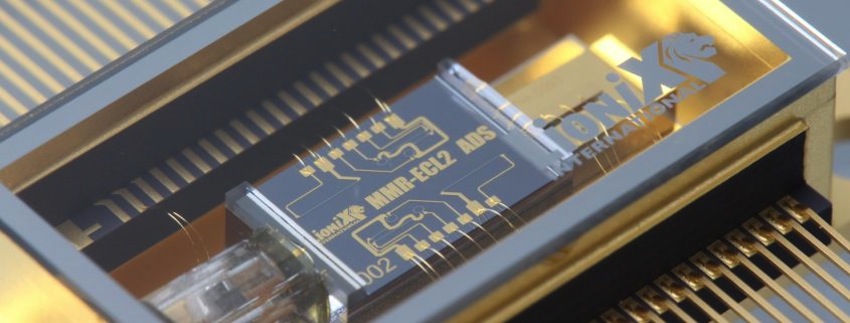
LioniX International (LXI) and Fraunhofer Heinrich Hertz Institute Berlin (HHI) are strengthening their collaboration on photonic integrated circuits (PICs) by actively supporting the integration of their two PIC platforms. Combining these, they believe, will enable new applications varying from telecom, datacom to bio-photonics, sensing and metrology.
Both platforms have their own properties which are complementary as was demonstrated in the recent realisation of the world record ultra-low linewidth lasers (290Hz linewidth).
HHI’s PIC platform relies on InP semiconductors, offering functions such as light sources, detection, amplification, and phase control in the wavelength region from 1200nm up to 1650nm. HHI´s portfolio of commercial products includes: high-speed photodiodes and balanced detectors, high-speed Mach-Zehnder- and other modulators, as well as a wide variety of laser products.
LioniX PIC platform is based on stoichiometric SiN realised by low pressure chemical vapour deposition (LPCVD) and is branded under the name TriPleX. The platform is complementary to the InP platform of HHI as it is ultra low loss (from 405 to 2350 nm) and has the ability to create spot size converters enabling an optimised conversion between the mode profiles in for example HHI’s InP chips as well as many types of fibres.
“Our unique hybrid integration capabilities support our customers that demand fully assembled Photonic Integrated Circuit Modules”, says Hans van den Vlekkert, CEO of LXI. “With HHI we have found a supplier that supports our vertical integrated approach to our photonic IC module manufacturing”.
“We are proud that LXI has selected HHI as a source for their outstanding products.“ says Martin Schell, Director of HHI. “Developing a standard interface between active and passive PICs allows for experience accumulation over many different designs and thus benefits hybrid integration and its industrial and academic users.”